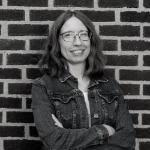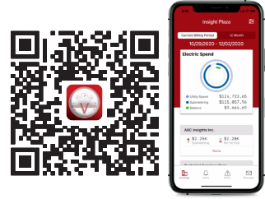The Cost Savings of Collaboration: A New Valley Hospital Case Study
Covid brought major delays to Valley's new hospital build. See how trust, transparency, and leadership helped avoid $5.2 million in costs during the construction of the new Valley Hospital.This 30-minute interview has been edited and condensed for clarity. A full transcript is available by clicking the video.
Watch the video here: https://www.youtube.com/2sGNmAGhxC0
[00:00:08] Joe Lorino: When I met Phil for the first time, I said, Phil, I want to build a building that I can operate and maintain. And I spent, which I usually did with most of my builders, I spent them educating on Day 2. What happens after the ribbon-cutting ceremony?
[00:00:23] What happens after you hand me the keys and I take over this project? I want to make sure that I'm able to operate and maintain this properly. And again, I keep going back to the healing environment of our patients. Cause that's what's most important to me.
[00:00:38] I need to operate that building for the next hundred years. If I won't be able to maintain it, then I won't be able to provide that healing environment.
[00:00:46] The same Day 2 values that Dick keeps talking about, in terms of operability, energy savings, optimizing energy, reducing our carbon footprint is very important to us because as everyone knows, the cost of healthcare is going up.
[00:01:05] Joe Lorino: It was primarily for the BMS or building management system. And the bids were all over the place. Anywhere from $5 million to $30 something million. So we asked if they could assist us.
[00:01:21] They were able to compare controlled points lists working with our design engineer and come up with a master list. And then we utilized that master list to determine what the cost would be.
[00:01:35] And at that point, I believe everyone, four different vendors came in and they were in the $8 million range. We leveled them out at the $8 million range. And then after that, we negotiated and the savings was $1.2M, $1.3M dollars.
[00:01:52] So after that, we'd expanded into more of supply chain issues and delivery issues, and more negotiation on negotiations of whether it was our chiller plant, BMS, or co-generation plant where additional savings were recognized.
[00:02:07] I have utiliVisor keep tabs on what our savings are up to date and as of today, and this and that report goes up to our CEO. And to date, with the multiple projects that they've been involved with, the savings... there's been a cost avoidance of about $5.2 million.
[00:02:27] Joe Lorino: Eventually getting back to the point list that you keep referring to, eventually to the patient. And the patients have to have that healing environment. And if we can't control the temperature and humidity in the ORs or in the patient rooms, there is not a good healing environment.
[00:02:45] So without the points list, without getting the right algorithms or the right loops and without being installed and commissioned correctly, those patients will not have their healing environment be at an optimal level.
[00:03:03] Joe Lorino: I'm thinking about every problem we've had. Now it's trivial, right? It's trivial right now, but at the time it was gloom and doom. But I can remember every one of those issues and problems or dilemmas that we sat around the table and were able to collaboratively come up with a solution. And a hundred percent of the time it's solved.
[00:03:29] Phil Centineo: Our biggest challenge that we overcame was the primary switchgear.
[00:03:37] We were shocked when we heard originally that the schedule for the delivery of the gear expanded to an additional six, eight months, which really created a hardship to make decisions about what to do, and we averted it by being nimble.
[00:03:56] With utiliVisor's help, we were able to maneuver and expedite to the fullest extent possible the delivery of the gear. We didn't want to spend a lot of overtime and we didn't want to spend a lot of money over $2M - $3M dollars in temporary electric. Because of Valley's leadership, we didn't spend that money and we've avoided that cost. And now here we are on the cusp of still delivering the hospital on time. That alone was our biggest challenge.
Valley Health
Joe Lorino, vice president of facilities management
Torcon
Phil Centineo, project executive
John Aletta, director of healthcare purchasing
utiliVisor
Richard Angerame, president and CEO
Chris Angerame, vice president of engineering
Key Takeaways
Challenges
-
Building a 900,000 square-foot, state-of-the-art hospital on budget
-
Covid-19 supply chain problems caused 6–8 month delay for primary switchgear
-
BMS bids ranged from $5 million to $30 million; similarly difficult-to-compare bids for chiller plant and cogeneration plant
Project Goals
-
Procure the most efficient and appropriate systems and equipment – on budget – to meet the hospital's long-term operational & sustainability goals
-
Create a collaborative, results-focused environment
-
Hand over a hospital built with Day 2 operations in mind
Solutions
-
Bid leveling & negotiation support
-
Day 2 operations monitoring
Why utiliVisor
-
A family-owned, service-first company
-
Depth of experience in the requirements for Day 2 operations
-
Renowned reputation for service & collaboration
-
Manufacturer-agnostic: devoted to efficiency and customer value
Results to Date
-
Identification of $5.2 million in cost avoidance
-
Procurement of higher-quality systems and equipment on budget
-
Minimal change orders
Curious how we can help you save?
Let's talkAbout utiliVisor
Your tenant submetering and energy plant optimization services are an essential part of your operation. You deserve personalized energy insights from a team that knows buildings from the inside out, applies IoT technology and is energized by providing you with accurate data and energy optimization insights. When you need experience, expertise, and service, you need utiliVisor on your side, delivering consistent energy and cost-saving strategies to you. What more can our 45+ years of experience and historical data do for you? Call utiliVisor at 212-260-4800 or visit utilivisor.com

